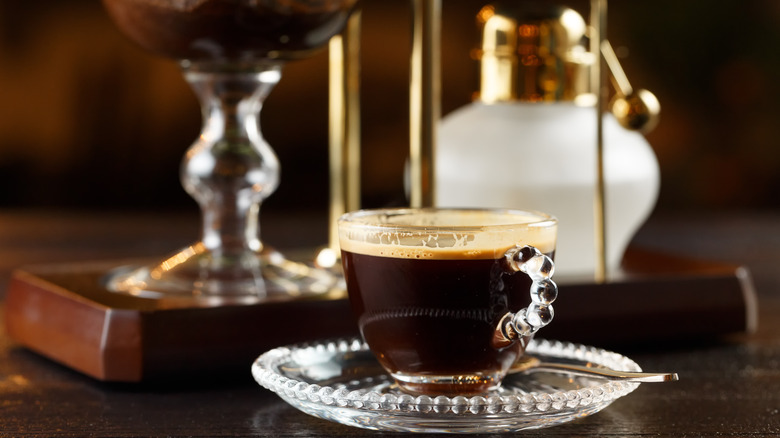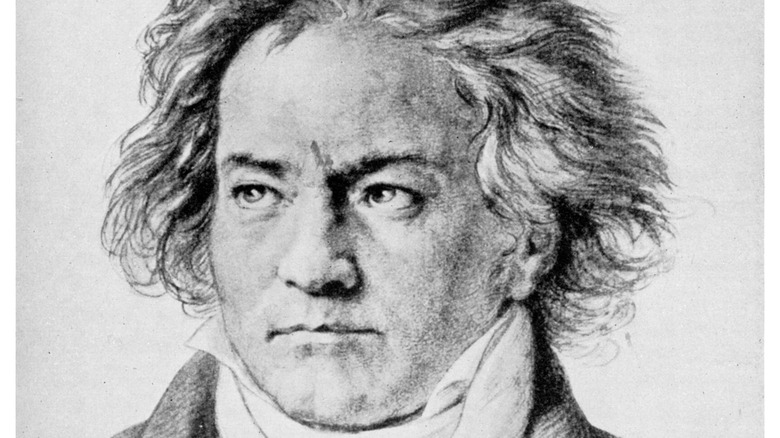The Precise Way Beethoven Insisted On Having His Coffee Brewed
A consistent morning routine can go a long way toward an improved lifestyle. As The Science Times notes, waking early and establishing a routine focused around doing something you enjoy, be it journaling or working out, can help increase productivity and reduce stress. And then, of course, there is that morning cup of coffee. While it may behoove you to wait an hour to let your cortisol levels settle, who among us is going to wait that long to enjoy our morning brew?
And we mere mortals are not alone in our love of an early cup of coffee — artists and thinkers like Balzac, Gustav Mahler, Marcel Proust, L. Frank Baum, and David Lynch were, and are, coffee lovers, according to Slate. However, one brilliant artist stands out in this cadre of caffeine lovers. Someone whose music has been so influential that one need only dramatically emphasize the opening notes, "dun dun dun duuuuun" of his Fifth Symphony in C minor, for his work to be recognized. He was, of course, Ludwig van Beethoven, and he was very particular about his morning joe.
60 beans per cup, no more no less
Beethoven is remembered as a tormented genius due to a difficult childhood and his becoming deaf (via Classic FM). Nevertheless, he managed to write incredibly complex, moving pieces of music. And it turns out he was no less exacting about how his coffee was prepared. Though Beethoven lived in Vienna, which had an exceptionally strong cafe and coffee culture during his lifetime, he made his coffee at home in a very precise way (via City of Vienna).
According to Coffee or Die Magazine, Beethoven likely learned how to make coffee at a young age. At 19, he was the youngest member of the Hapsburg Empire's court orchestra and was relegated to performing kitchen duties during their tours of the Rhine. Though he became known as an awful cook, this did not translate to his coffee-making skills.
As an adult, Beethoven would count out 60 coffee beans every morning. It was this number, he believed, that would make a perfect cup of coffee. Sixty ground beans is roughly equivalent to 8 grams (enough for a decent espresso), though this wasn't invented until 1884, according to Open Culture. Beethoven used a glass, balloon-style coffee maker of his own invention, which probably looked similar to a modern siphon brewer. But it must have pulled a great cup of coffee because this ritual remained unchanged for the remainder of Beethoven's short life.

